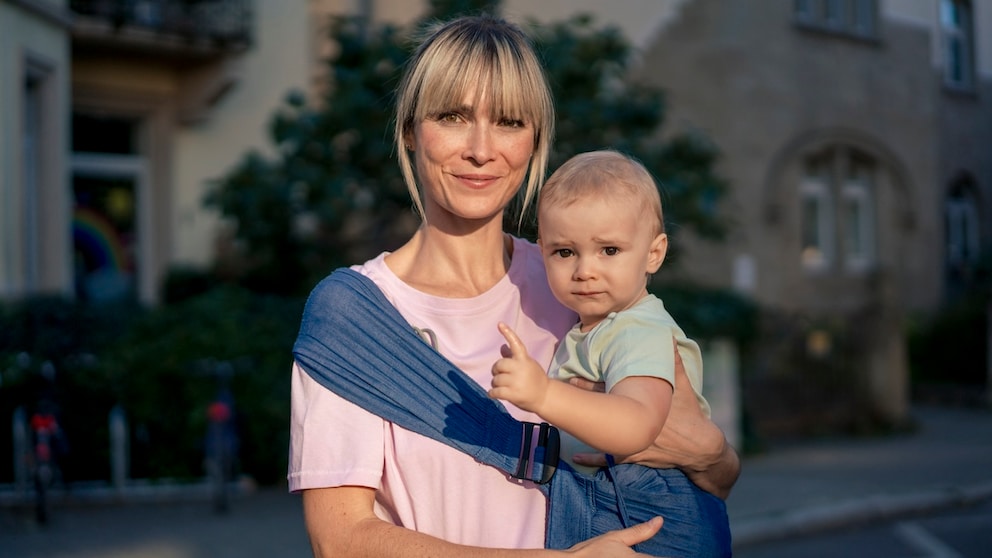December 19, 2024, 2:46 pm | Read time: 5 minutes
For many women, the desire to have children later in life goes hand in hand with career realization or simply other priorities. But how can women preserve their fertility for as long as possible? Dr. Heidi Gößlinghoff explains what really counts – from nutrition tips and environmental factors to cycle monitoring methods.
Pregnant at 20? Although according to expert Dr. Heidi Gößlinghoff, the first five years of our twenties are the best time to get pregnant, we may well have other plans for the time being. The worry that many women then have: Is it too late after that? However, the gynecologist assures that even a later desire to have children should not be a source of worry. In an interview with STYLEBOOK, she shared insights on how to extend your fertility.
Overview
A Healthy Diet Is Key to Fertility
“Adjust your lifestyle to your desire to have children,” advises Dr. Gößlinghoff. “This entails minimizing consumption of convenience foods, fast food, and preservatives.” This is because these foods damage the intestinal flora, which plays a key role in fertility.
The expert explains why a healthy gut is so important, even if you are trying to conceive late: “The gut produces vitamins, vitamin precursors, hormones and hormone precursors. It takes care of the immune system and the water balance and ensures that nutrients are broken down.” But that’s not all. An intact intestinal flora forms a protective layer for the intestinal wall, which prevents harmful substances from entering the bloodstream. “If this does happen, silent inflammation occurs, which triggers stress and disrupts the hormonal balance. This has a negative effect on egg maturation,” explains Dr. Gößlinghoff.
Women who want to maintain their fertility should focus on a plant-based diet with plenty of fiber. “Fresh food helps to maintain intestinal health,” adds the gynecologist.
Slowing Down the Aging of Egg Cells
Biological age remains one of the biggest enemies of the late desire to have children. “We women have most of our eggs in the 20th week of our mother’s pregnancy,” says Dr. Gößlinghoff. After that, the female body no longer produces any new eggs. Around 1,000 eggs are lost every month.
However, a healthy lifestyle can help to keep as many egg cells as possible in good condition. “Vital substances that act as free radical scavengers can reduce damage to the egg cells,” emphasizes the gynecologist. Recommendations include a balanced diet, regular exercise, and sufficient sleep.
Observe the Menstrual Cycle
To fulfill a late desire to have children and maintain fertility, you should keep a close eye on your menstrual cycle. Dr. Gößlinghoff recommends the temperature curve method: “It’s a bit of work at first. You take your temperature every morning before getting up and enter the values on a sheet or cycle computer.” The temperature curve provides valuable information about the cycle phases: “You can see how long the first half lasts, when ovulation occurs, and whether the second half is long enough for an embryo to implant.”
Ovulation tests that measure the luteinizing hormone (LH) in the urine are also available. “If the test shows an increase in LH, ovulation will take place in the next 24 to 36 hours,” explains Dr. Gößlinghoff. She advises: “It’s advisable to engage in intercourse as LH levels rise, allowing sperm ample time to reach the fallopian tubes.”
Environmental Factors and Their Influence
In addition to diet and lifestyle, environmental factors also play a major role in maintaining fertility, even in the case of a late desire to have children. “Men should avoid carrying cell phones in their trouser pockets to protect their testicles. For women, the laptop should not be on the lap, as this can affect egg quality,” says the gynecologist.
She also warns against chemical substances such as plasticizers. “BPA, a substance in plastic, can upset the hormone balance in small doses.” Such substances act as endocrine disruptors, which can disrupt the hormonal balance and impair fertility.
What You Can Do in the Long Term
The most important thing you can do to remain fertile in the long term is to lead a healthy lifestyle. Dr. Gößlinghoff emphasizes three key points: Diet, weight, and pace of life. “Make sure you eat a healthy diet with few preservatives and flavorings. Maintaining intestinal health is crucial for preserving fertility.” Minerals and vital substances are just as important: “These nutrients support the health of your eggs and uterus.”
Another factor is weight. “An optimal BMI ranges from 19 to 24. Too low or too high a weight upsets the hormonal balance.” And finally, Dr. Gößlinghoff advises: “Regular exercise and adequate sleep are essential for protecting fertility.”

STYLEBOOK Experts These methods are available to calculate fertility

Hormone coach in a STYLEBOOK interview Expert explains: Why we should live according to our cycle

Women's Health Nutrition That’s Good For You During Menopause
“There Are Many Things You Can Do to Ensure That Having Children Later in Life Is Not a Problem
Even though age is a natural factor, women can do a lot to preserve their fertility by adopting a conscious lifestyle. With a healthy diet, a good body weight, exercise, and sleep, you can create the best conditions for a desire to have children later. Dr. Gößlinghoff summarizes: “Numerous strategies can help you maintain the ability to have children in the long term—prioritize your health early.”

